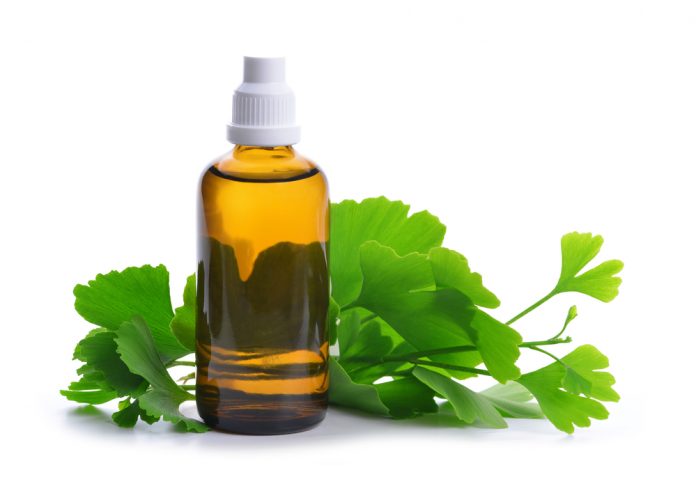
Radiation is all around us; it’s not something we can avoid completely. After all, sunlight comes to us in the form of ultraviolet rays, and we need sunlight to produce vitamin D and to enjoy other health benefits. But we’re concerned primarily about the radiation from other sources, the harm it can do to your body, and how you can detox from radiation using herbs and other supplements.
What are the types of radiation?
Radiation is a form of energy that travels through space and can penetrate the human body as well as many other objects and materials. Nonionizing radiation is one form, and it’s best known as light, radio waves, and microwaves.
The form we are most concerned about is ionizing radiation. This form produces ions, which are unstable atoms (charged particles) in the body. Ions can damage your cells and even cause them to mutate, which is a risk for cancer.
Sources of ionizing radiation
The mere fact that you live on the planet exposes you to ionizing radiation. Did you know the ground you walk on is likely emitting ionizing radiation from the soil and rocks? Radon is a radioactive gas that is released from these sources as well as from building materials and water.
Do you watch television, use a cell phone, have smoke detectors in your house, or fly in airplanes? Then you’re exposed to ionizing radiation. You can also get it from combustible fuels, eyeglasses, fluorescent lamp starters, tobacco, and medical scans, such as x-rays, computed tomography (CT) scans, PET/CT scans, and radioactive compounds used in imaging. Yes, it’s everywhere!
In a nutshell, here’s what happens. When ionizing radiation enters your body from various sources, it causes electrons to be ejected, which leaves positive ions (cell-damaging free radicals) behind. These ions can damage DNA and eventually lead to the development of cancer.
Herbs that protect against radiation
Mother Nature has some very interesting options for protecting against and managing exposure to ionizing radiation. According to several research studies, a number of plants appear to be “radioprotective” against the effects of ionizing radiation, such as protection against DNA damage. The herbs include but are not limited to:
Astragalus (Astragalus membranaceus) is a common herbal remedy in Traditional Chinese Medicine. It is an adaptogen, which means it helps protect the body against stress. Astragalus also has been shown to possibly help individuals whose immune systems have been compromised by chemotherapy or radiation and to support thyroid function.
Bael (Aegle marmelos) is a tree native to Southeast Asia and the Indian subcontinent. Scientists have shown how this herb can protect against radiation-associated DNA damage by increasing antioxidant activity.
Ginger (Zingiber officinale) has many phytochemicals (e.g., dehydrozingerone, zingerone) with protective effects against radiation and chemotherapy, according to a recent comprehensive review of the research.
Ginkgo (Ginkgo biloba) was shown to help manage recovery workers at the Chernobyl accident site. A daily dose of 40 mg for two months taken three times daily for two months helped protect against the damaging effects of ionizing radiation.
Indian pennywort (Centella asiatica), a perennial herb that grows mainly in Asia. Research shows it may protect against damage to membranes and DNA caused by radiation.
Korean ginseng (Panax ginseng) is a perennial herb that grows in eastern Asia. Research in animals has shown that giving this herb inhibited side effects of radiation, life-shortening, and weight loss.
Long pepper (Piper longum) has shown an ability to help maintain white blood cell levels as well as increase production of glutathione, which offers protection against radiation.
Mint (Mentha arvensis and M. piperita), and specifically these two species, has demonstrated an ability to protect against sickness and death associated with exposure to radiation.
Pithraj tree (Aphanamixis polystachya) is native to Bangladesh, Bhutan, India, Nepal, Pakistan, and Sri Lanka. The bark extract of this medicinal plant has been shown to reduce changes to chromosomes associated with radiation exposure.
Seabuckthorn (Hippophae rhamnoides) is a shrub and an herb whose flowers, fruits, seeds, and leaves are used to make remedies. In animal research, the pulp and seed oils have been shown to protect against radiation-induced intestinal injury.
Tulsi (Ocimum sanct) is an herb that’s been shown to possess radioprotective effects in animals by reducing damage to cells and chromosomes related to radiation exposure in animals.
Turmeric (Curcuma longa) contains curcumin, the main curcuminoid of turmeric, a member of the ginger family. Researchers have found some evidence that curcumin has radioprotective abilities and its anti-inflammatory powers can help protect the skin from radiation.
Bottom line
Nature has provided us with numerous herbal remedies and supplements that can help detox against radiation exposure. Much research still needs to be done to determine the best natural supplements for this purpose and the optimal dosage. For now, the dosage recommendations provided by manufacturers for these supplements are suggested.
Sources
Alsherbiny MA et al. Ameliorative and protective effects of ginger and its main constituents against natural, chemical and radiation-induced toxicities: A comprehensive review. Food and Chemical Toxicology 2019 Jan; 123:72-97.
Baliga MS, Rao S. Radioprotective potential of mint: a brief review. Journal of Cancer Research and Therapy 2010 Jul-Sep;6(3):255-62.
Cohen MM. Tulsi – Ocimum sanctum: A herb for all reasons. Journal of Ayurveda and Integrative Medicine 2014; 5(4):251-59.
Emerit I et al. Clastogenic factors in the plasma of Chernobyl recovery workers: Anticlastogenic effects of Ginkgo biloba extract. Radiation Research 1995; 144:198–205
Jagetia GC, Venkatesha VA. Treatment of mice with stem bark extract of Aphanamixis polystachya reduces radiation-induced chromosome damage. International Journal of Radiation Biology 2006 Mar; 82(3):197-209.
Jagetia GC et al. Evaluation of the radioprotective effect of Aegle marmelos (L.) Correa in cultured human peripheral blood lymphocytes exposed to different doses of γ‐radiation: a micronucleus study. Mutagenesis 200 Jul; 18(4): 387-93.
Jagetia CG. Radioprotective potential of plants and herbs against the effects of ionizing radiation. Journal of Clinical Biochemistry and Nutrition 2007; 40(2):74-81.
Joy J, Nair CK. Protection of DNA and membranes from gamma-radiation induced damages by Centella asiatica. Journal of Pharmacy and Pharmacology 2009 Jul; 61(7):941-47.
Klein VN. Using foods and herbs for radiation detoxification. Adytum Sanctuary
Mount Sinai. Astragalus
Shi J et al. Protective effects of seabuckthorn pulp and seed oils against radiation-induced acute intestinal injury. Journal of Radiation Research 2017; 58(1):24-32.
Sunila ES, Kuttan G. Protective effect of Piper longum fruit ethanolic extract on radiation induced damages in mice: a preliminary study. Fitoterapia 2005 Dec; 76(7-8):649-55.
Verma V. Relationship and interactions of curcumin with radiation therapy. World Journal of Clinical Oncology 2016 Jun 10; 7(3):275-83.
Verma P et al. Management of radiation injuries by Panax ginseng extract. Journal of Ginseng Research 2011; 35(3):261-71.










